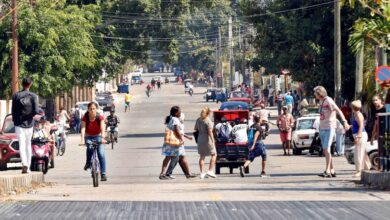Amazon’s prices of water surge amidst Hurricane Irma
Who’s to blame?

During Hurricane Irma’s preparation in Florida, United States, Amazon’s prices on water and supplies increased substantially; public unrest against the company followed. Twitter users publicly shamed Jeff Bezos’s business for “gouging on life-sustaining necessities like water”; other user said, “trying to buy food on Amazon before Irma, prices have tripled. Isn’t that price gouging?”. Business Insider stated that a 24 pack of Aquafina, which is usually sold at $6 dollars now it’s at $20, while a 24 pack of Nestlé water was being sold at $179.25.
Two things must be considered in order to understand this phenomenon:
Hurricane Irma started of as a category 5 hurricane, which means that winds of 185 miles per hour were expected for 35 hours straight. The storm already damaged 90% of the island of Bermuda and has a current death toll of 23. Miami, Fort Lauderdale, Boca Raton, and West Palm Beach remain at the highest risk.
Amazon operates as an electronic commerce company that provides a diversified list of products and services. The company has warehouse control and thus is able to quickly ship anything to any destination inside the United States. Yet, the company doesn’t control the input of the products it trades, so their prices and quantities are subject to supply and demand.
In one hand, we have high tension existing among Florida’s most affluent population. On the other,, we have a company that sells items, like water, under free market rules. When demand for a product whose quantities are limited, the price is expected to rise, so that should come to no surprise, but is there a logical explanation for the prices to increase in a six fold as it is currently happening?
Jamie L. Kurtz Ph.D. a social psychologist, exposed the phenomenon of “panic-shopping”, a trend where individuals shop compulsorily before a known tragedy arrives. The focal point is that shopping relieves stress, which improves people’s psychological condition before an uncertain situation.
The social psychologist adds that people will buy more than needed to compensate for the loss of control individuals face during the storm. Also, normative pressure makes people buy items that other people are buying in fear it’s going be necessary in the future. Panic shopping is more than preparing against a catastrophe; it’s a social ritual to prepare for an experience few people in the area have faced before.
Amazon takes pride on being a company whose price decisions are based on models, which are, in all cases, representations of reality; surges in the price of water must have a human explanation.
It’s logical to think that Hurricane Irma approaching Florida would trigger bottled water sales in the area. Then, distortive panic shopping would increase demand at an even higher cost. Having a large amount of individuals, with an above average income panic-buying water, will naturally boost its price even more.
Latin American Post David Eduardo Rodríguez Acevedo
Copy edited by Susana Cicchetto





